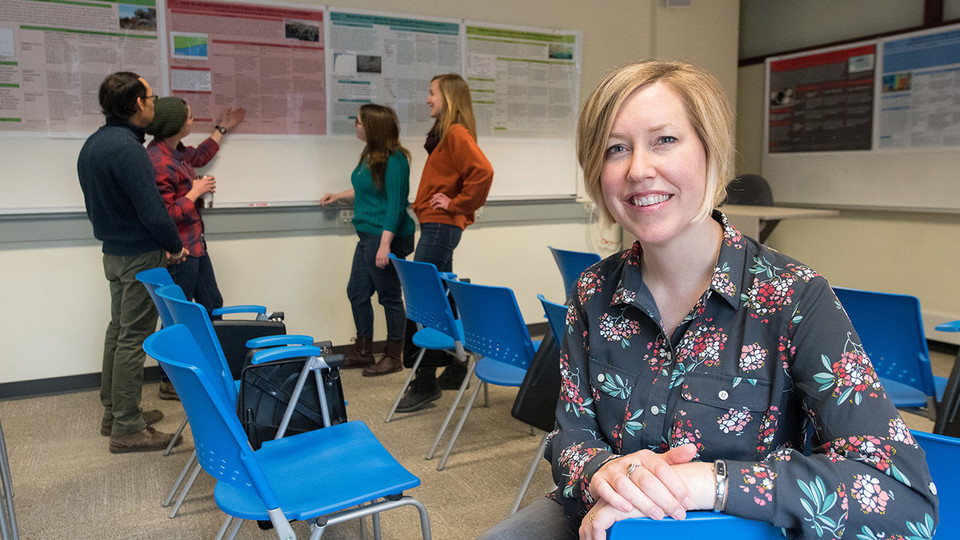Cory Matteson, March 18, 2020
Project will explore how emotions factor into science literacy
Suppose a professor asks her students to create a set of health policies regarding e-cigarette use. It’s a big topic, one that warrants informed thought around the key decisions to be made.
To that end, the professor provides a wealth of information to aid the students’ decision-making processes. There could be early scientific evidence linking e-cigarette use to severe lung disease, as well as evidence crediting vaping products with helping people to quit smoking. Students could weigh how important those and other economic and public health evidence are in their decision-making, and build policies around that.
But what if one of the students vapes? Would that impact how he responds to the class exercise? How objectively would he interpret the evidence his professor gave him? How would that affect the weight he gives to one piece of information versus others? Jenny Dauer, associate professor in science literacy in the University of Nebraska–Lincoln’s School of Natural Resources, is investigating how beliefs and scientific reasoning can coexist, and how recognizing the presence of a student’s strong belief can be a first step in an informed, involved decision-making process.
Through a $349,852 grant from the National Science Foundation, Dauer is embarking on a study of how human factors such as emotion, motivation and metacognition — thinking about thinking — come into play in science classrooms. An end goal of the research, she said, is to develop tools that help students recognize when their beliefs affect their decision-making process and help them to make objective decisions after taking their beliefs into account. The two-year grant began on Jan. 1.
“The hope is that, through our work, science educators broadly may have more insight into the dynamics of their classroom community and improved tools to support student learning, especially when controversial topics are used as a context,” Dauer said.
The grant program funds individual investigators to acquire expertise and skills to conduct fundamental research in STEM education. With her funding, Dauer will attend educational psychology conferences and collaborate with an expert in the field, University of Southern California education professor Gale Sinatra, who specializes in psychological research centered on public understanding of science. Sinatra also teaches evolution and climate change.
Dauer said the project will lead to immediate benefits for her Science Literacy 101 course, which is required for all students in the College of Agricultural Sciences and Natural Resources. There, students participate in assignments similar to the e-cigarette project, navigating complex issues such as energy consumption, water scarcity and public health threats. The students’ task is to propose science-informed changes to status quo policies.
With the help of a postdoctoral student and part-time data technician she will hire with the NSF funding, Dauer said data collected in the Science Literacy 101 classes will help find out which students identify as close stakeholders to the issues being addressed. Then, they will determine if students who have close connections to the issues have a harder time on assignments that ask them to examine evidence related to the issue. In a subsequent semester, half of the Science Literacy classrooms will include toolkits developed by Dauer to help students reflect on their emotions about the issues they’re scientifically addressing.
“Tools for reflection may ask students to consider more deeply how they view the issue, emotions that the issue brings up, how well they understand evidence that is related to the issue, and what they view as reliable information and evidence,” Dauer said.
Dauer said if the tools prove helpful to students in the selected Science Literacy 101 classes this semester, they will be implemented across all sections of the course in the fall. All told, the proposed work will impact at least 1,200 Husker students over the course of the two-year grant. That marks the beginning of a proposed five-year research path on the subject, which Dauer said could help countless more students in the long run.
“The hope is that the classroom tools that we produce for the class will be successful in reducing barriers for students to engage in learning, and that these tools can then be adapted widely in other courses that teach using complex controversial issues as contexts,” Dauer said.






